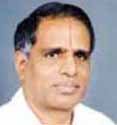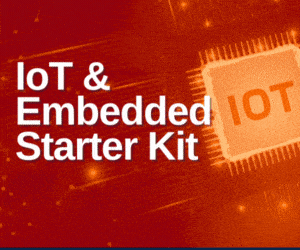[stextbox id=”info”]
Depending on whom you work for, you will need different competencies. Signal processing requires a sound knowledge with both analogue and digital signal processing. There is maths, algorithms, implementation, tools, system design and so on.
requires a sound knowledge with both analogue and digital signal processing. There is maths, algorithms, implementation, tools, system design and so on.
—Prof S. Sadgopan, Founder Director, IIIT- Bangalore
[/stextbox]
The next thing you need to know is the basic hardware and its usage. Standard hardware can be divided into functional blocks, for example—DSP clocks, external memory, expansion interface, PCI interface, JTAG emulation, programmable logic, audio interface, power supplies, voltage supervision, user option, LED indicators and so on. Try to get an overview of each of them. Your realistic knowledge of electronics circuit will be useful at this stage. In addition, the preliminary knowledge of ARM series processor, RTC, memory chips, video standards (MPEG, H.264, VC-1) and video processing wide application porting, FIR and IIR filters, linear time invariant systems, algorithms development and Matlab experience may be nice.
Most manufacturers of DSP devices offer a low-cost development board that is intended to be used for the basic evaluation of the technology. It is usually free standing and connects to the PC via a slow data link—a serial or parallel connection. It comes along with a comprehensive set of software tools for assembling, linking, debugging and downloading code.
In fact, you may consider continuing your final year project with such a ‘starter kit.’ This is all that is needed to begin experimenting and developing the device. Major manufacturing firms across the world also hold informative DSP seminars for beginners.
Know the real systems
On reaching this point, your next challenge will be to explore how to provide solutions for a real device. You can learn the chip to ship of this process only after completing a proper project. “Augmenting the university curriculum with good industrial training/projects would be an excellent way to prepare oneself for the career,” Says Rajam.
Nearly all our institutes, barring a handful, are woefully inadequate in providing students with such opportunities. But, industry is always ready to help a deserving candidate. Ravikumar, Technical Director-University Relation, Texas Instruments, explains that their extensive ‘internship programme’ provides enough learning opportunity to a student. The only thing to do from the students’ end is to complete the groundwork about DSP by using the steps we have discussed earlier.
“We also have a strong internship programme, and a lot of times interns join us after completing their term. DSP engineers are expected to have a good background in the fundamental courses covered during under graduation (E&C, EE & CS) and post-graduation (M.Tech, PhD) exhaustively. The person interested in joining DSP field should have a strong background in mathematics, electronics and computer engineering along with analytical skill sets like algorithm development, problem definition and solution. A good understanding of system modeling and simulation and programming skills (Mat lab/Assembly/C/C++) is necessary for an aspirant,” says C.P. Ravi Kumar, technical director, university relations, Texas Instruments.
A DSP application industry may also turn out to be your favorite destination. For example, the telecom sector is likely to see tremendous growth in India’s rural and semi-urban areas in the years to come. So, involvement in a wireless DSP implementation project in CDMA/WCDMA/LTE can go a long way in providing an edge over your competitors. Bear in mind, no matter which type of application is involved in the project, it will no doubt touch upon areas like—DSP software development, participation in architecture specification, design, coding and module/subsystem testing. A good understanding of the network transmission hierarchy may prove useful.
Last but not the least
If you feel that you may lag behind due to lack of practical exposure then a strategically chosen course may be the solution. I emphasise on the word ‘strategically’ because it decides whether you will get a job or your money will go down the drain. So, before choosing the course, judge the reputation of the institute, the certification system, the industry accreditation and the course curriculum.
Ultimately, everyone wants a best fit. Therefore the first step is to be clear about your goals. Then you can go ahead and make that call!
The author is a consultant—editorial, industry & academia interface at EFY






